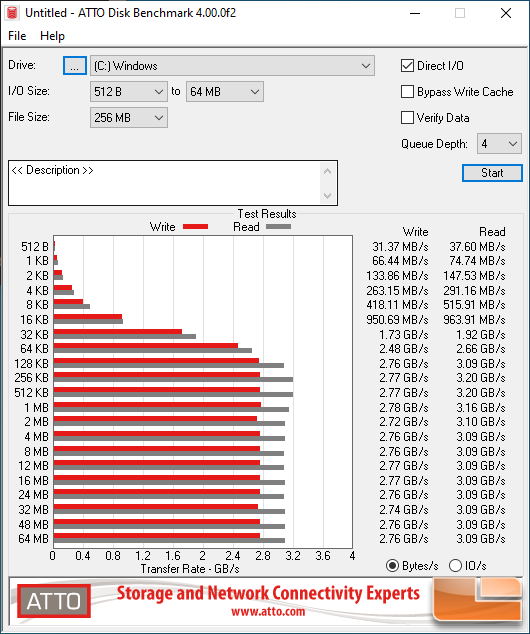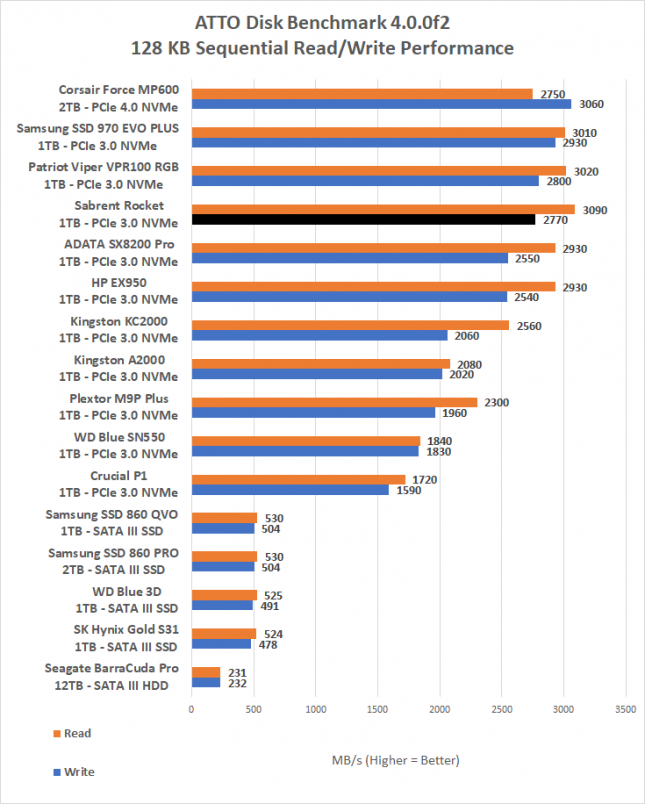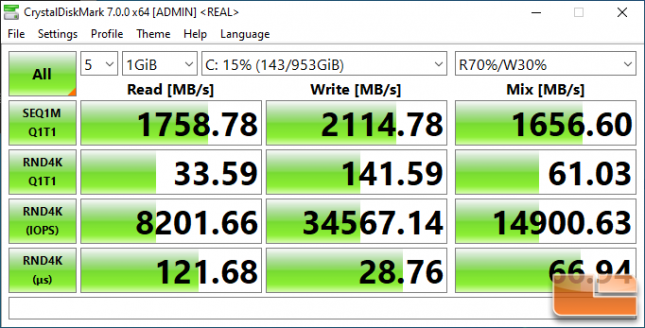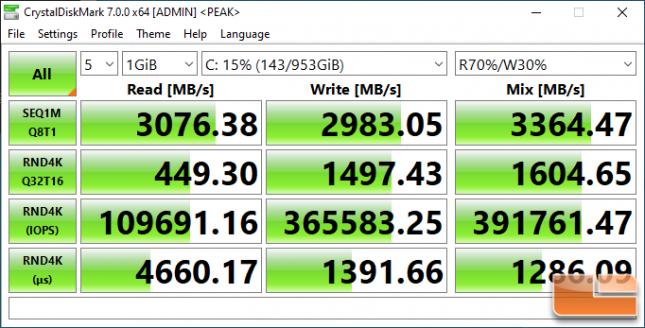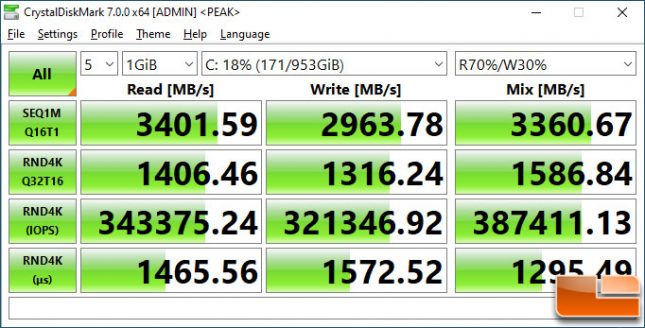Sabrent Rocket 1TB SSD Review – TLC NAND Flash
ATTO & CrystalDiskMark
ATTO v4.00.0f2
ATTO is one of the oldest drive benchmarks still being used today and is still very relevant in the SSD world. ATTO measures transfers across a specific volume length. It measures raw transfer rates for both reads and writes and places the data into graphs that can be very easily interpreted. The test was run with the default runs of 0.5KB through 64MB transfer sizes with the total length being 256MB.
ATTO Disk Benchmark:
Benchmark Results: On ATTO Disk Benchmark we see that the Sabrent Rocket 1TB drive reached speeds of up to 3.20 GB/s read and 2.78 GB/s write at a Queue Depth of 4. This drive is rated at reached speeds of up to 3.4 GB/s read and 3.0 GB/s write, so we are touch below that here when testing this SSD as a primary drive. The Sabrent Rocket scores close to the Patriot Viper VPR100 RGB 1TB SSD and that is expected as both use the Phison E12 controller with Toshiba TLC NAND Flash memory.
CrystalDiskMark 7.0.0 x64
CrystalDiskMark is a small benchmark utility for drives and enables rapid measurement of sequential and random read/write speeds. Note that CDM only supports Native Command Queuing (NCQ) with a queue depth of 32 (as noted) and shows the highest score of five runs.
CystalDiskMark:
Benchmark Results: The Sabrent Rocket 1TB drive maxed out at 3076.38 MB/s read and 2983.05 MB/s write in the standard sequential write test that is done at Q8T1. Random 4K performance topped out at 109,691 IOPS read and 365,583 IOPS write. This drive is rated at 3,400 MB/s sequential read and 3,000 MB/s sequential write, so we are just below the drives rated speeds for some reason once again. You know what, most benchmarks of this drive showing results of 3,400 MB/s or higher are running on CrystalDiskMark 6 as it runs at a higher queue depth… What well happen if we manually increase the default queue depth from QD8 on the built-in peak test up to QD16.
We managed to hit 3,400 MB/s on the sequential read test at QD16! Very few consumer PCs will ever be run at QD16, but we wanted to see if we could come closer to the drives rated speeds. If you download CrystalDiskMark 7 and run it on the Rocket drive you’ll need to bump up the queue depth like we did to hit those top speeds.
Let’s look at some other benchmarks!

